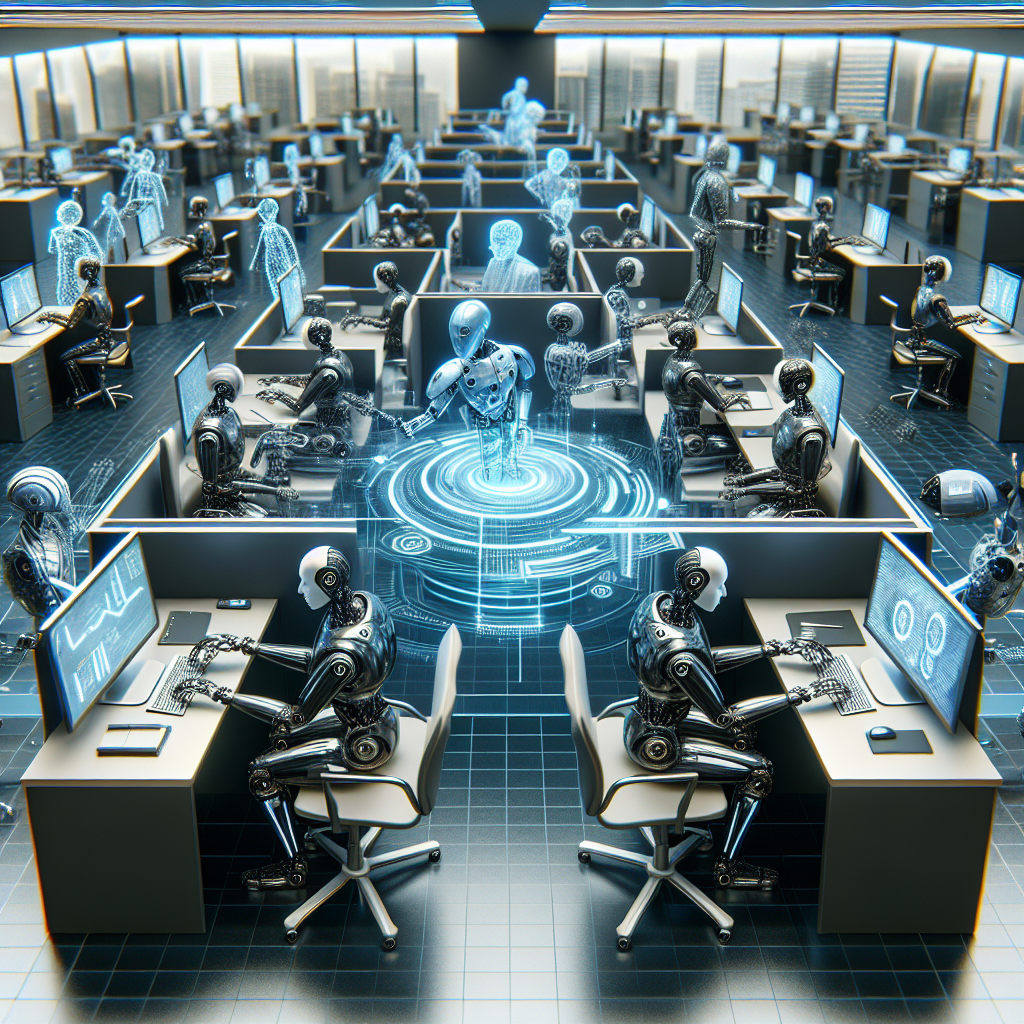In recent years, artificial intelligence (AI) has become increasingly integrated into various industries, revolutionizing the way we live and work. While AI has the potential to greatly benefit society by increasing efficiency and productivity, there are also concerns about the impact it may have on the future of work. One of the major risks associated with AI is job displacement, as automation and AI technology have the potential to replace human workers in a wide range of industries.
The Rise of AI and Job Displacement
AI technology has advanced rapidly in recent years, with machines now capable of performing tasks that were once thought to be exclusively within the realm of human abilities. From self-driving cars to customer service chatbots, AI is already being used in a variety of industries to streamline processes and increase efficiency.
While AI has the potential to create new jobs and industries, there are also concerns that it will lead to widespread job displacement. As machines become more capable of performing a wide range of tasks, there is a risk that many human workers will be replaced by AI technology. This could lead to unemployment and economic instability for large segments of the population.
The Impact on Different Industries
The impact of AI on job displacement is likely to vary depending on the industry. Some industries, such as manufacturing and transportation, are already experiencing significant job losses as a result of automation and AI technology. For example, self-driving trucks have the potential to replace millions of truck drivers, while robots are increasingly being used in manufacturing processes.
Other industries, such as healthcare and education, may also be at risk of job displacement as AI technology becomes more advanced. For example, AI-powered diagnostic tools are already being used to assist doctors in diagnosing and treating patients, raising concerns about the future of jobs in the healthcare industry.
The Risks for the Future of Work
The potential risks associated with job displacement due to AI technology are significant. One of the main concerns is the impact on income inequality, as the jobs most at risk of displacement are often low-skilled and low-wage positions. This could lead to a widening gap between the rich and the poor, with those who are already disadvantaged facing even greater economic hardship.
There are also concerns about the social implications of widespread job displacement. Unemployment can have negative effects on mental health and well-being, leading to increased rates of depression, anxiety, and substance abuse. It can also lead to social unrest and political instability, as people who are unable to find work may become disillusioned with the system and turn to radical ideologies.
In addition, job displacement due to AI technology could lead to a loss of skills and expertise in certain industries. As machines take over more tasks, there is a risk that human workers will lose the ability to perform these tasks themselves. This could lead to a decrease in innovation and creativity, as well as a loss of valuable knowledge and experience.
FAQs:
Q: Will AI technology lead to widespread job displacement?
A: While AI technology has the potential to replace many jobs, it is also likely to create new jobs and industries. The impact of AI on job displacement will vary depending on the industry and the specific tasks being automated.
Q: What can be done to mitigate the risks of job displacement due to AI technology?
A: There are several steps that can be taken to mitigate the risks of job displacement, including investing in education and training programs to help workers adapt to the changing labor market. Governments can also implement policies to support displaced workers, such as retraining programs and unemployment benefits.
Q: How can AI technology be used to create new job opportunities?
A: AI technology has the potential to create new job opportunities in a wide range of industries, such as data analysis, cybersecurity, and software development. By investing in AI research and development, companies can create new products and services that require human workers to operate and maintain.
In conclusion, the risks of job displacement due to AI technology are significant, and it is important for policymakers, businesses, and individuals to take proactive steps to mitigate these risks. By investing in education and training programs, supporting displaced workers, and creating new job opportunities, we can ensure that the future of work is inclusive and sustainable.

